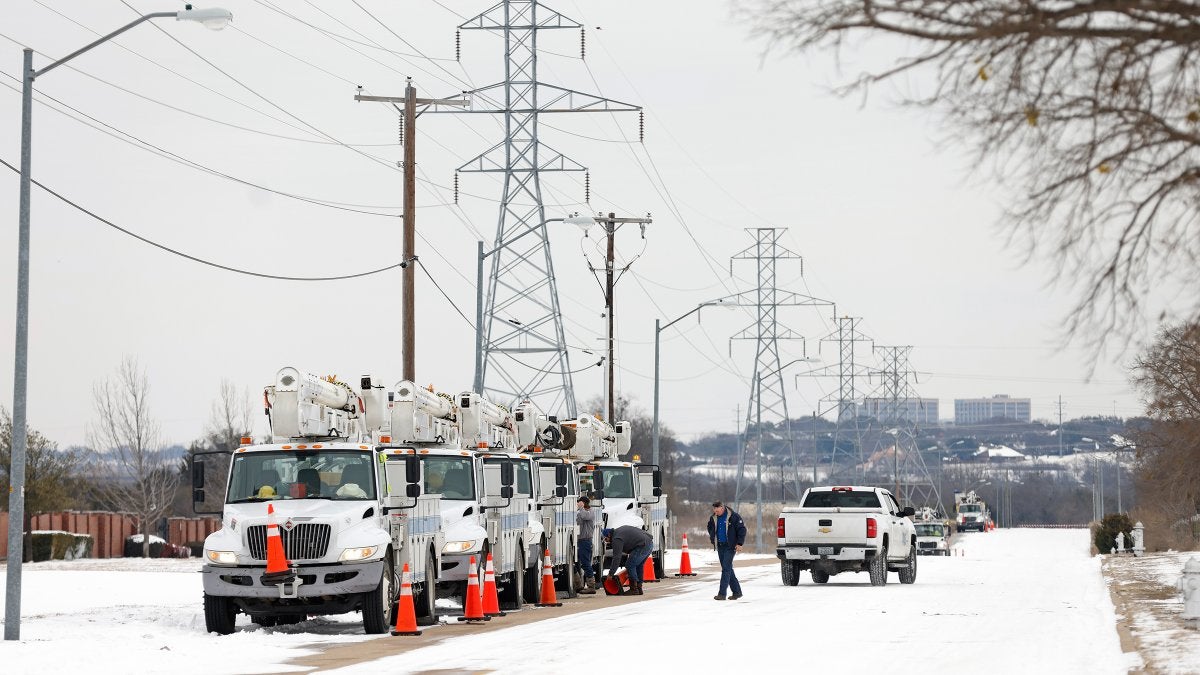No products in the cart.
Outdoor Adventure
Don’t Blame the Texas Blackouts on Renewable Energy
In an attempt to garner attention from other people’s suffering, Fox News and a range of right-wing mouthpieces, including Lauren Boebert, the freshman representative from Colorado’s third district, are blaming the bulk of Texas’s current power outages on frozen wind turbines. “It takes a special kind of stupidity to run out of energy in Texas,” she tweeted.
That’s false, dangerous, and insulting to the more than three million Texans who were without power as of Tuesday afternoon, not to mention the energy producers racing to get the state’s grid back online.
Here’s a quick energy history for the nerds out there. Most of the U.S. depends on one of two sprawling power-grid systems, called the Eastern and Western Interconnections. But in the 1970s, Texas developed its own grid, mainly to avoid federal regulation and standards, according to the Texas Tribune; it is managed by an electrical-system operator called the Electric Reliability Council of Texas (ERCOT), which supplies power to 90 percent of the state. That means two things: Texas is isolated from the rest of the national power supply, and it’s limited to the energy sources on its grid, making it particularly fragile when those go down.
Sorry, Tucker Carlson, this is not a story about the flakiness of renewables.
What electricity sources are those? Mainly wind and natural gas. Power surges are rare during the state’s normally mild winters, and when Winter Storm Uri hit this weekend, ERCOT was already struggling with natural-gas availability as Texans across the state jacked up their thermostats. It was cold, and as it got colder, freezing temperatures in the state’s natural-gas-production zones, like the Permian Basin, short-circuited supply just when demand was hitting record highs. ERCOT sent out a series of frantic social media messages asking customers to reduce use. But because there simply wasn’t enough power supply to meet the demand, they had to resort to rolling blackouts.
In other words, while renewable energy sources like solar and wind were getting a lot of smack from Boebert and company for not being reliable, the larger issue was the carbon-based sources’ fragile supply chains. Wind turbines froze, yes, but they were just one piece of a catastrophic system failure. And not an all-that-big part—wind power (which is relied on less by ERCOT during the winter) only accounted for 13 percent of the state’s power outages, according to Dan Woodfin, a senior director at ERCOT. He told Bloomberg News that “while ice has forced some turbines to shut down just as a brutal cold wave drives record electricity demand, that’s been the least significant factor in the blackouts.”
So, sorry, Tucker Carlson, this is not a story about the flakiness of renewables. Instead it’s a story about how isolation and overtaxed power sources of any kind are dangerous. This example underscores the importance of energy security, and it shows how a lack of it can be deadly in the face of extreme temperatures, which likely will be more common thanks to climate change. Texas has faced shortages like this before, including in 2011 and 2018, and there will be more “perfect storms” like this one in the future. The Lone Star State is not alone in trying to figure out reliable power in the face of climate variability either.
This is an ugly time to throw stones at renewable sources, especially from people like Boebert, whose own district in Colorado is a glass house of declining extraction jobs. Instead, let’s think about how to do it better and how important it is to have a diverse array of power sources and reliable storage. Let’s talk about modernizing the grid all across the nation, as President Biden has pledged to do. Let’s explore how small, connected local sources that bring power onto the grid from rooftop solar panels could make grids safer and more reliable. Instead of slamming any given power source, why don’t we focus on backup systems for extreme-weather events, and how to manage demand to make our supply safer? Instead of attempting to exploit a tragedy for political gain, we should find a way to create resilient systems that will reduce human suffering during future natural disasters.
Lead Photo: Ron Jenkins/Getty

